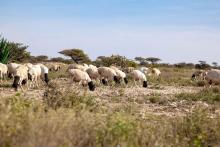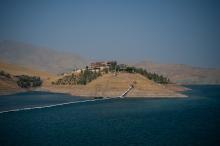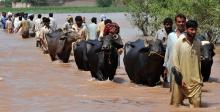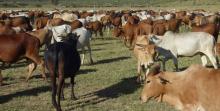Somalia has in recent years been ravaged by the effects of a multi-year drought driving food insecurity and conflict across the Horn of Africa and pushing millions to migrate to urban settings in search of food and safety. PSI recently sat down with the Climate and Environment Advisor for the UN in Somalia, Christophe Hodder. We asked him about his work and the environmental challenges that Somalia will face in the coming years.












